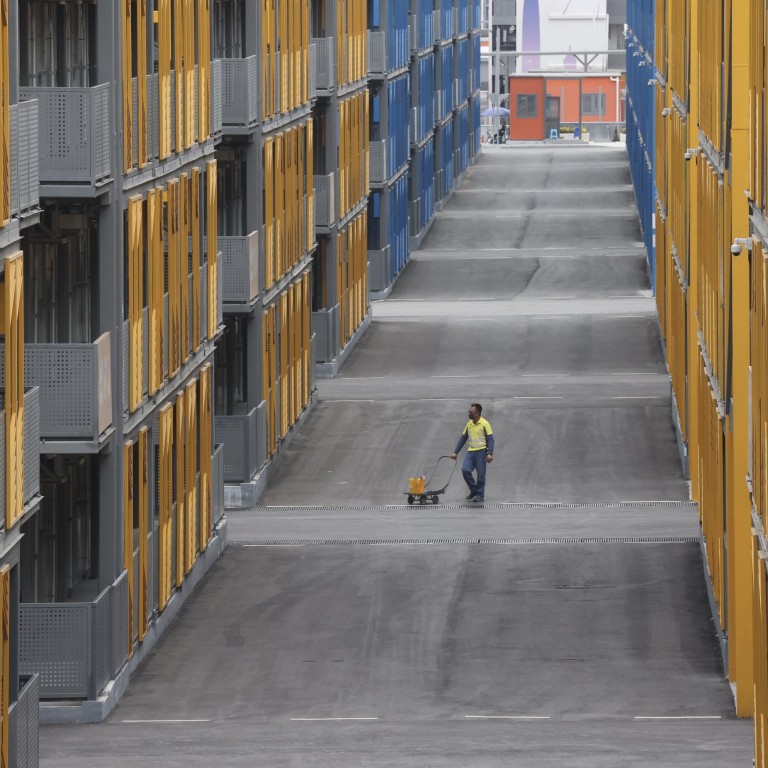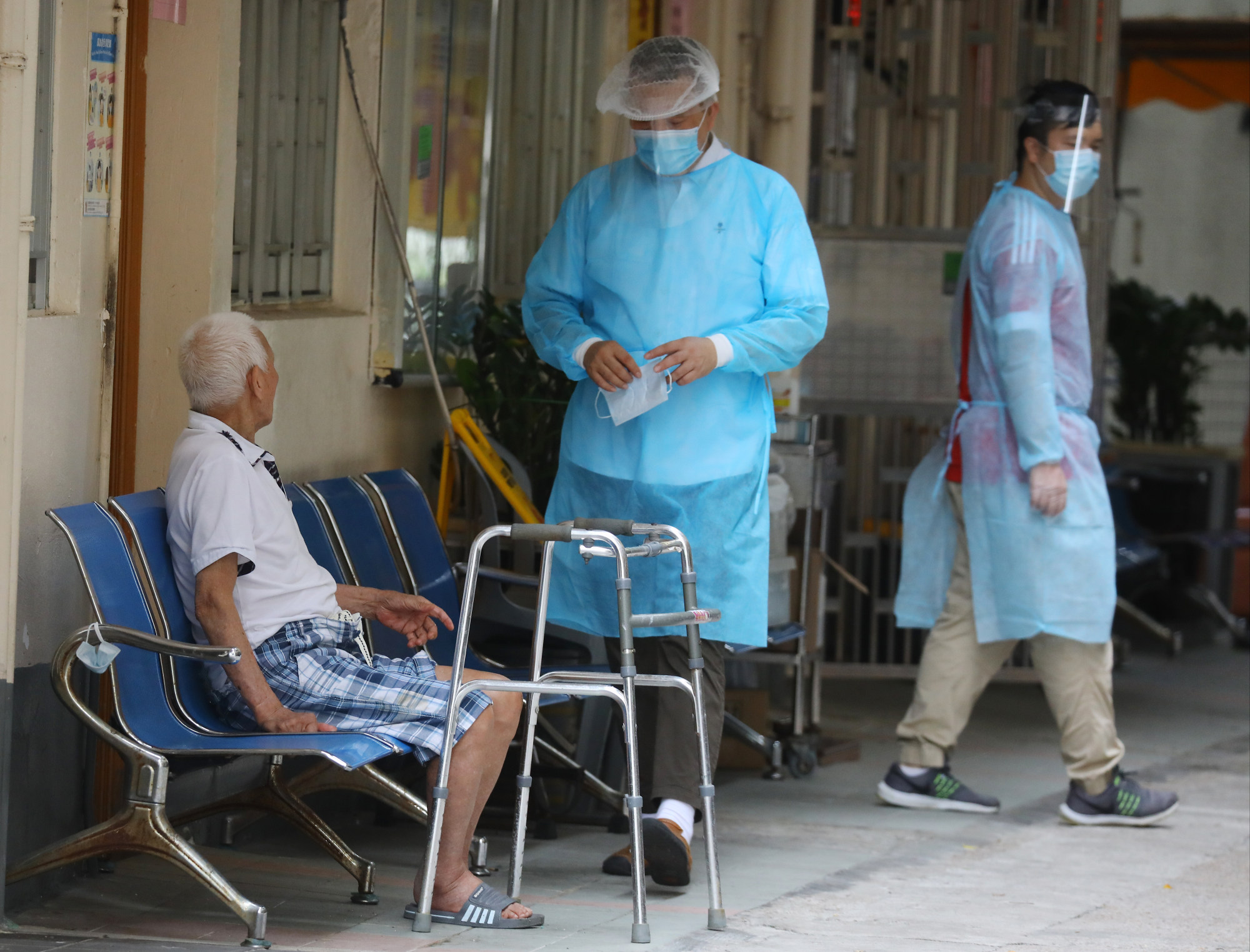
Coronavirus: Hong Kong bosses taking no chances with infected workers even as mandatory isolation for Covid patients is axed
- Operators in some sectors say they will still ask infected staff to stay at home to protect other workers and people they serve
- But whether worker receives paid sick leave depends on employer if doctor’s medical certificate recommends fewer than four days off
Operators in the school, care home, restaurant and hotel sectors the Post talked to were responding to the government’s decision to scrap the isolation policy for Covid-19 patients, who will be able to leave home and go to work on their own accord from January 30.
But without the isolation orders that entitled employees to paid sick leave of any duration, labour laws allow employers to decide whether to provide such benefits to staff if the time off work recommended by doctors in a medical certificate is fewer than four days.

Restaurateur Yeung Wai-sing, who also chairs the Association for Hong Kong Catering Services Management, welcomed the flexibility that the policy removal allowed, especially as the industry faced a manpower shortage.
“No matter if it’s negative or positive, if [an employee] is asymptomatic we will ask him to put on a mask and work. That should be fine as customers won’t notice,” he said on Friday.
But Yeung said staff with symptoms would be sent home as they could put off customers, especially in Chinese restaurants where big families with young and old gathered. Unwell workers were also less likely to endure the long shifts customary in the catering industry, he added.
If fewer than four days of sick leave were needed, Yeung said he expected staff would be told to offset the time off with compensation leave or even annual leave until their symptoms eased.
Top adviser urges review of Hong Kong’s handling of Covid only after pandemic
Other sectors would exercise even more caution. Winnie Chan Wun-yin, association manager at the Federation of Hong Kong Hotel Owners, said daily rapid antigen tests (RATs) would continue at most properties, and sick employees could only go back to work after returning a negative result.
She said the stringent practice would offer two-way protection to hotel guests as well as workers, who would come in contact with visitors from outside the city.
Kindergarten principal Lam Tsui-ling would also not be taking any chances.
Lam, who chairs a head teachers’ group representing kindergartens in the Tsuen Wan and Kwai Tsing districts, said they would only let sick teachers return to work after their rapid tests returned negative results.

She said the approach was needed given the low vaccination rate among young children, noting that more than 20 per cent of her pupils had not received any shots.
Both Chan and Lam said they would rely on doctors to sign off certificates that provided enough time for a negative test result to appear.
“We’ll heed the doctors’ advice, though I don’t think a doctor will tell a kindergarten teacher to return to work when it’s still showing two lines,” Lam said, referring to a positive result on a rapid test.
But principal Polly Chan Shuk-yee, a vice-chair of the Hong Kong Aided Primary School Heads Association, said it would be difficult asking asymptomatic teachers not to return to work given Education Bureau instructions.
Health minister hopeful Hong Kong will axe more Covid curbs after Lunar New Year
In the letter dated January 20, the bureau said asymptomatic teachers and school staff with positive test results “can go out or go to work freely”.
“The question is what does ‘asymptomatic’ stand for,” she said, adding that as a sick teacher could cite the bureau’s letter and insist on going to school, they could only try to ensure the person did not share a room with others without wearing a mask.
Guidelines issued to care homes for the elderly require all staff to continue to do polymerase chain reaction (PCR) tests every 48 hours and daily RATs. The Social Work Department has “strongly advised” staff who test positive not to return to work.

Grace Li Fai, an executive council member of the Elderly Services Association of Hong Kong, maintained that any responsible care home employer would not let staff return to work before they tested negative, but she said the government’s PCR testing requirement was redundant and unnecessarily added to their administrative workload.
Dr Cheng Chi-man, chairman of the Hong Kong Medical Association, said that in addition to the severity of a patient’s symptoms, doctors issuing sick leave certificates would also consider the person’s job.
“We might be somewhat more ‘generous’ in giving sick leave if they come into contact with high-risk people, such as carers or care home workers, or if they handle food,” he told a radio programme.
Visitors are flocking back to Tokyo and Macau. Is Hong Kong being left behind?
Respiratory disease specialist Dr Leung Chi-chiu said that while those working with people of higher risk of infection should get tested every day, employees in the food and pharmaceutical industries who had jobs in low-temperature settings should also use extra measures as the coronavirus could spread faster in cold environments.
“Employers should keep an eye on the circumstances closely to see whether they need to make any adjustments,” Leung said.
Additional reporting by Zhao Ziwen

